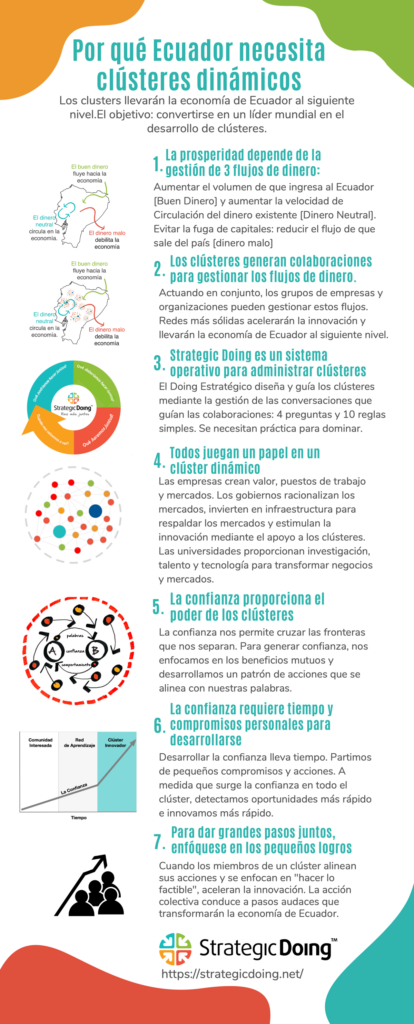Insights from Ecuador: Moving to Network Thinking
Networks — collaborations, open innovation, clusters, ecosystems — drive an economy forward. Yet, many of today’s leaders are lagging behind.
It’s understandable.
They developed their skills in an Industrial Age, a time when hierarchical (vertical) thinking dominated organizations.
These mental models are past their expiration dates. The dynamics of our economy have been shifting for some time.
Elimination of trade barriers and advances in logistics (think container shipping) accelerated globalization beginning in the 1980s. Major advances in the commercial Internet swept through markets beginning in the 1990s.
The Global Financial Crisis in 2008 exposed the weakness of our old Industrial Age thinking. Our models of the economy — based on neoclassical economics — were hopelessly outdated. They could not grasp the contagion of defaults sweeping through markets.
And now the pandemic has shifted work patterns more aggressively toward networks.
Our organizations are just starting to adapt.
In our work in Ecuador, we are reaching out to business leaders so they learn the importance of networks and collaboration. To design and guide these networks, we will all need to master new skills.
We need public policies that focus less on pushing money out the door with shiny new programs.
We would do better to focus on developing enduring capabilities: the skills to design and guide networks. That’s the approach we are taking in Ecuador.


The Founder of the Lab at UNA and co-author of Strategic Doing: 10 Skills for Agile Leadership, Ed’s work has focused on developing new models of strategy specifically designed to accelerate complex collaboration in networks and open innovation. He is the original developer of Strategic Doing.
